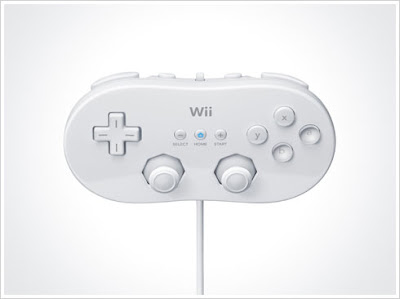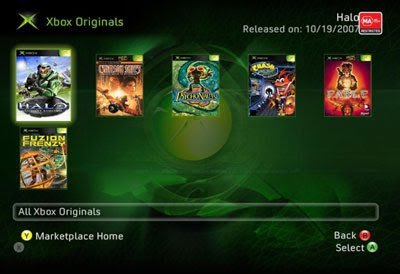Trending
Opinion: How will Project 2025 impact game developers?
The Heritage Foundation's manifesto for the possible next administration could do great harm to many, including large portions of the game development community.

Featured Blog | This community-written post highlights the best of what the game industry has to offer. Read more like it on the Game Developer Blogs or learn how to Submit Your Own Blog Post
This post examines the industry's attempts at making console emulation legal, how it relates to the possibility of an archive of console video games, and where there could be improvements in such endeavours.


In the video game industry, much time and effort is put toward new ventures. Whether this means merely a new instalment of a franchise, an entirely new IP, or the next console/graphics card down the road, the industry tends to keep its gaze future-bound. At least, this is how it seems to one presently outside of the industry (like myself). While the future is definitely important, it should not stand without acknowledging its history. In this case, "history" meaning "older video games". Essentially, I am saying that before going too far forward, it would be wise to archive old games.
Before going further, it would be wise to establish what I mean by "archival". In this case, I am not referring to mere records of the existence of past games and consoles. I am also not referring to the matter of actually archiving physical copies of games and their respective consoles (although this is a very important endeavour). No, in this case I mean digital archival: the digital preservation of games and consoles via the process of emulation (I am staying out of the concept of PC game archival due to my lack of knowledge on the subject). Also, I propose that these emulated games and consoles be made public for the average consumer.
Granted, the concept of digital emulations of games and consoles is nothing new. ROM downloads and the like have been available online illegally for years now. While some may claim that these illegal methods* are good enough for archival, I beg to differ. What I propose is legal emulation of old games and consoles, something which is still in a state of infancy.
Nintendo was the first to support the idea of legal emulation for console games with their introduction of the Virtual Console. It allows consumers to purchase and play digital copies of older games for older consoles (like Super Mario Bros. for the NES). Sony has a similar system in place with their PSOne Classics available on the PlayStation Network, and Microsoft has made some Xbox Originals available for download over the Xbox LIVE Marketplace. While all of these initiatives are good starts, they still have some major caveats in terms of acting as archival systems.
Firstly, each system only seems concerned with their "Greatest Hits", so to speak. Sure, one will be able to find nearly all of Mario's earlier titles in the Virtual Console, for example, but niche/unknown games are generally left at the wayside. It's understandable why this is done, though; more money is likely to be made with hits, and it would be financially unwise to keep games around that do not necessarily sell. Still, it's disheartening to see that a vast multitude of old games (including even some of the greats) are not being preserved for future generations, especially since their being digital makes it much easier to archive than it would a physical product. Server space may cost money, but it could hold digital copies of all video games ever made easily; the illegal emulation websites can attest to that.
 Secondly, these systems are generally updated at very sluggish paces. At least in North America, the Virtual Console, for example, usually only dishes out one game a week (sometimes not releasing anything at all, and very rarely releasing multiple titles). Sony's PSOne Classics, in recent times, has a somewhat better track record of releasing usually two PS1 games a week (although there are weeks sometimes where only one or none are released). The Xbox Classics, lastly, do not seem to be updated at all anymore, standing still at 29 games in North America. Now, while the Japanese counterparts for the Virtual Console and PSOne Classics seem to generally fare better with more releases a week, the systems are still lagging far behind the number of titles that can be found online illegally in an instant. (This is especially evident in the case of Sony; they are a full console behind with their digital offerings since they seem to be shying away from PS2 emulation on the PS3 at the moment. Hopefully that changes in time.)
Secondly, these systems are generally updated at very sluggish paces. At least in North America, the Virtual Console, for example, usually only dishes out one game a week (sometimes not releasing anything at all, and very rarely releasing multiple titles). Sony's PSOne Classics, in recent times, has a somewhat better track record of releasing usually two PS1 games a week (although there are weeks sometimes where only one or none are released). The Xbox Classics, lastly, do not seem to be updated at all anymore, standing still at 29 games in North America. Now, while the Japanese counterparts for the Virtual Console and PSOne Classics seem to generally fare better with more releases a week, the systems are still lagging far behind the number of titles that can be found online illegally in an instant. (This is especially evident in the case of Sony; they are a full console behind with their digital offerings since they seem to be shying away from PS2 emulation on the PS3 at the moment. Hopefully that changes in time.)
Thirdly, only home consoles seem to be the focus of these systems. Sony has changed this trend somewhat in recent times by making some of their older UMD titles available via the PlayStation Network now that the PSP go lacks a UMD drive. Nintendo, however, despite the successes of the various iterations of Game Boy, has yet to release a handheld Virtual Console equivalent now that the DSi has sufficient memory capability and an online presence. This may change in the future, though, so this complaint may be somewhat premature, but the fact that DSi Ware cannot be transferred between DSi handhelds does not bode well for such a system.

Which leads to my final complaint: these systems have some holes in regard to purchasing these old titles. While most purchases are tied to their respective systems' accounts (e.g.: Xbox LIVE accounts, PlayStation Network accounts), they are still limited to a certain number of downloads for certain things, and as stated before, transferring these purchases to replacement consoles can sometimes be a hassle (if not impossible). Granted, this is due to the industry's rightful want to avoid any piracy, but it does not bode well. This may become especially troublesome when the next generation of consoles arrives; will PSOne Classics purchased on a PS3 be transferable to a PS4, for example? One can only hope that these digital purchases are "future-proof". Then again, gamers are used to having to re-purchase back catalogues of games, so the industry may not see a need to keep this compatibility. For the sake of archival, though, it would be wise for them to do.
Solving all of these problems will not necessarily be easy (especially in the case of the ownership of the digital purchases), but it can be done. This becomes especially evident when focus is put once again on the illegal emulation scene. Vast catalogues of ROMs and ISOs have been collected by enthusiasts and hobbyists, and consoles have been emulated by people who have never worked on the originals. If this amount of progress can be made by those outside of the "Big Three" (Nintendo, Sony, and Microsoft), it is only reasonable to assume that more progress can be made from within. For example, a stable PS2 emulator would probably be much easier to develop from within Sony than from without.
But this all leads up to an interesting question: do the Big Three really care about preserving older titles? After all, old games go out of print rather quickly and yet the Big Three still make money with their newer titles. What incentive would they have for archival?
It's a good question. Some may say that good money can be made from the sale of older games, but that may merely be a drop in the bucket. Really, I don't think the Big Three really care about archival. It is my hope, however, that game developers themselves care and will persuade the Big Three to be interested. I would expect that many game developers would only support game archival, just like how most writers would support the preservation of old literary works and film makers the preservation of old film. History is important in any field, and being able to experience that history first-hand is invaluable. Being able to play an old title trumps any write-up describing it. Granted, my emulation proposal does not replicate the entire experience of playing a real old game on a real old console, but it is much better than having nothing at all.
Essentially, I suppose I'm saying that people will be emulating games illegally anyway. If we want to curb this piracy, why don't we just make a legal alternative for those who would be interested? It would be naive to assume every pirate would convert, but it would probably convert some, and maybe it would deter some of the future piracy of our past titles.
After all, how can we stand on the shoulders of giants if the majority of the giants are lost to history?
*I understand that emulation of a console, in some cases, can be legal by itself and that the illegality lies more in the ROMs and ISOs themselves. I refer to the emulation as illegal in this article, though, to illustrate the differences between the emulation solutions made by the Big Three and the emulation solutions made by the public.
(This post can also be found on my multi-purpose blog, Mulling Over The Multiverse, which has both a primary Blogger location and a secondary LiveJournal location.)
Read more about:
Featured BlogsYou May Also Like